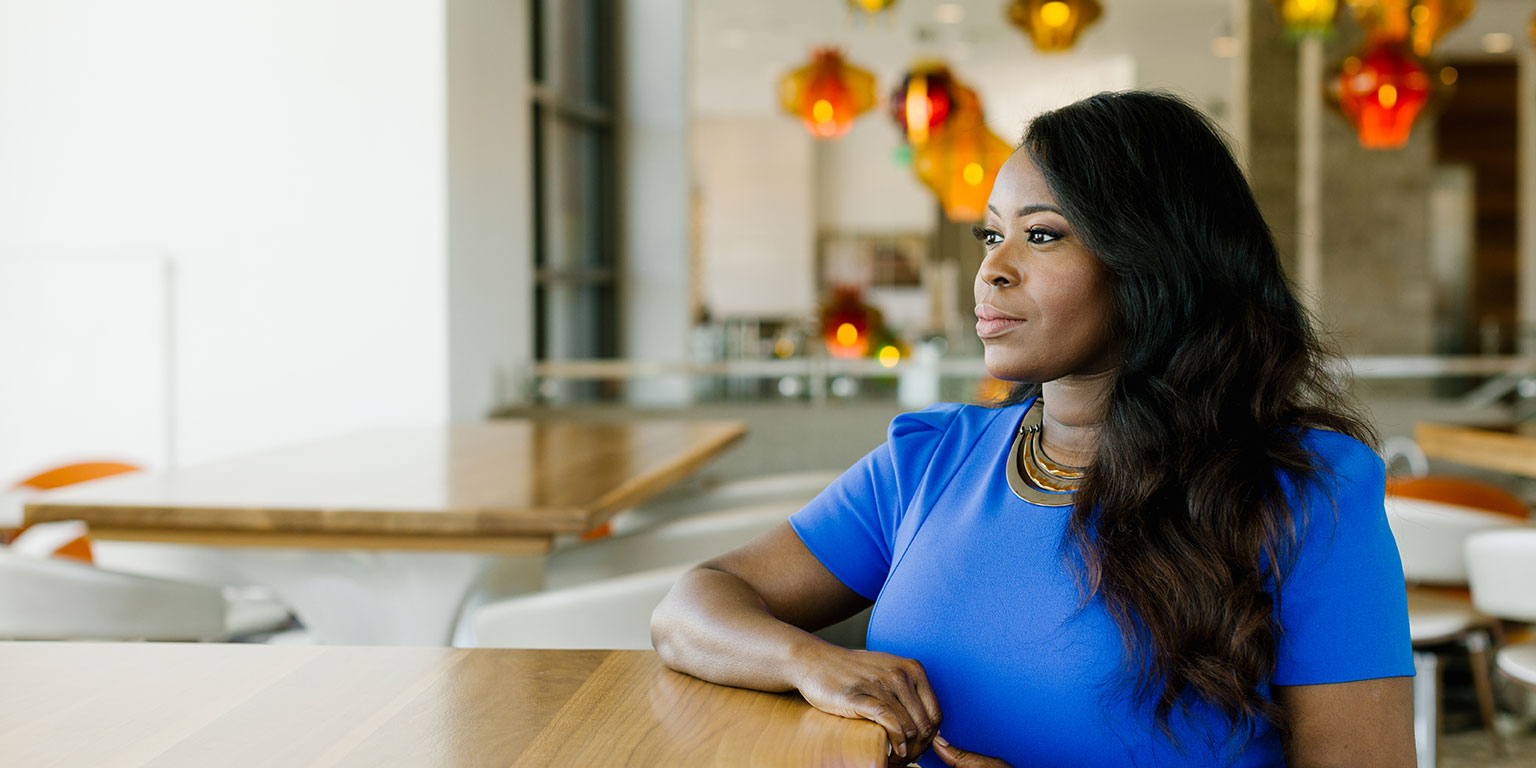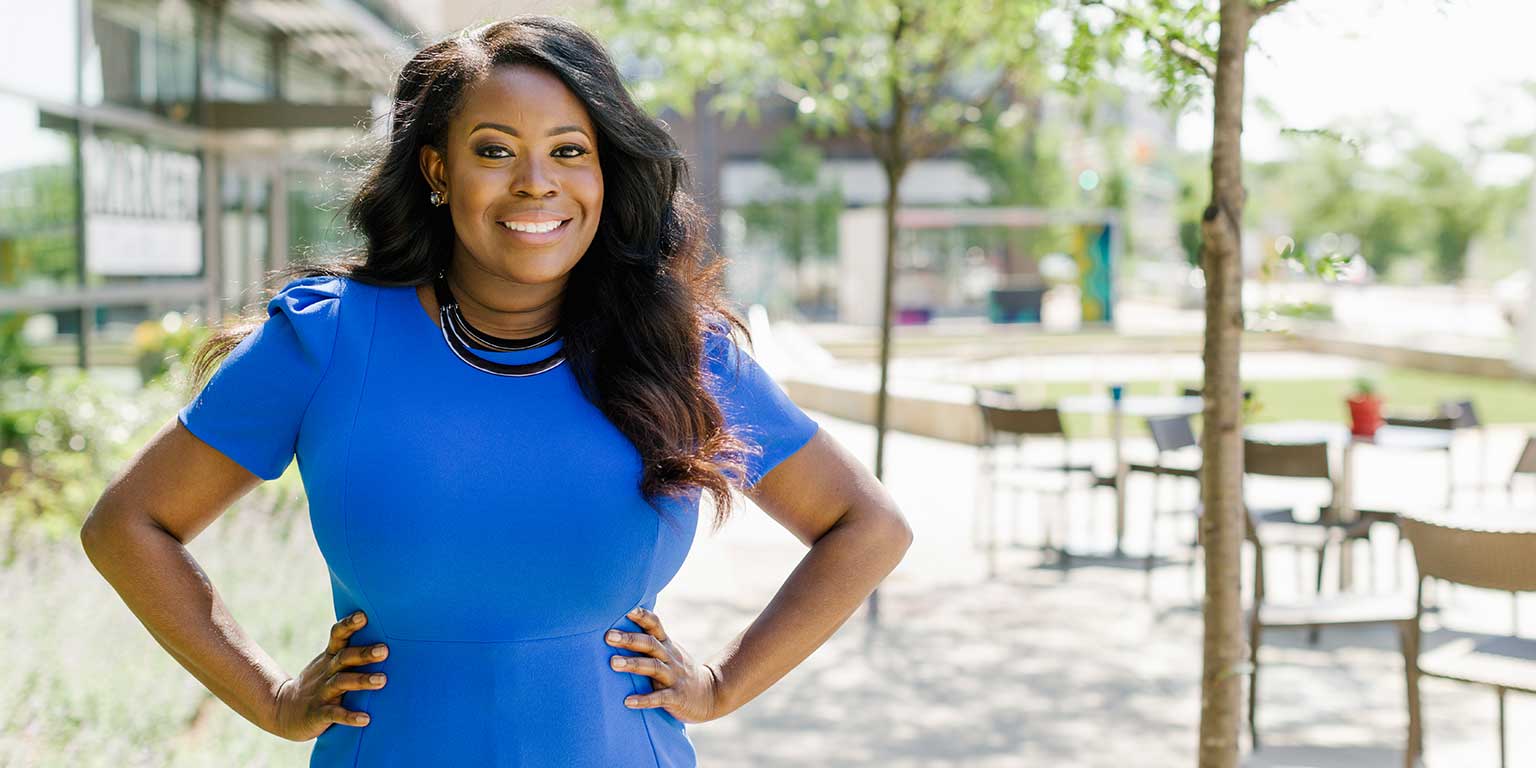By Lana Spendl | Fall 2018
Photography by Anna Powell Denton
Baindu Bayon (B.S. ’03, Biology) and I meet at a busy Starbucks in Indianapolis. She’s an out-of-towner now — she recently moved to Washington, D.C. — but she was born and raised in Indiana. Baindu moves with the grace and confidence of someone entirely in her element. She’s poised, elegant, and steady as she speaks. Her voice is deep. We sit at a tall table while people line up nearby to order drinks. Outside, the sun shines. It is Sunday. Cars turn in jerks in the small lot.
I ask Baindu about her parents’ native Sierra Leone and about her childhood inclinations toward science. She pauses after each question with a smile and begins to share, gesturing with manicured hands, her eyes steady on mine. Her stories are full of detail — sights, sounds, smells — and I notice myself hanging on every word. I even have a hard time breaking eye contact to look down to my pen and pad to take notes.
In time, we begin to talk about illness, medicine, and death. Baindu’s mother passed away about five years ago, due to a rare form of gastrointestinal cancer. Baindu remembers sitting at a computer to study the condition — she was in graduate school at the IU School of Medicine back then — and she remembers hitting dead end after dead end. She was surprised by how little research on the illness was available. To make matters more stressful, she was the only member of her family in the medical field, and the pressure she felt was significant. Faces turned to her at each new development, faces seeking answers, advice, appropriate reactions. If her expression betrayed worry, worry spread to those around her.




